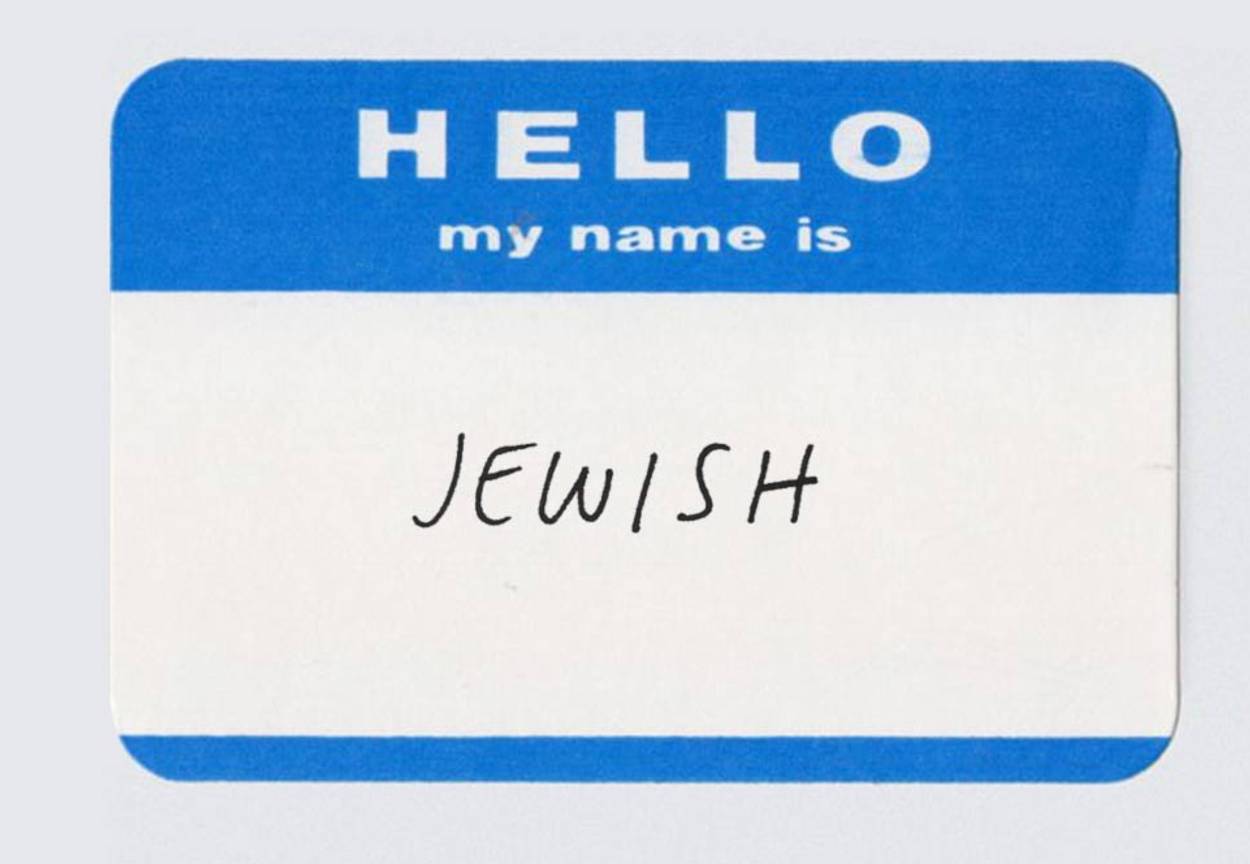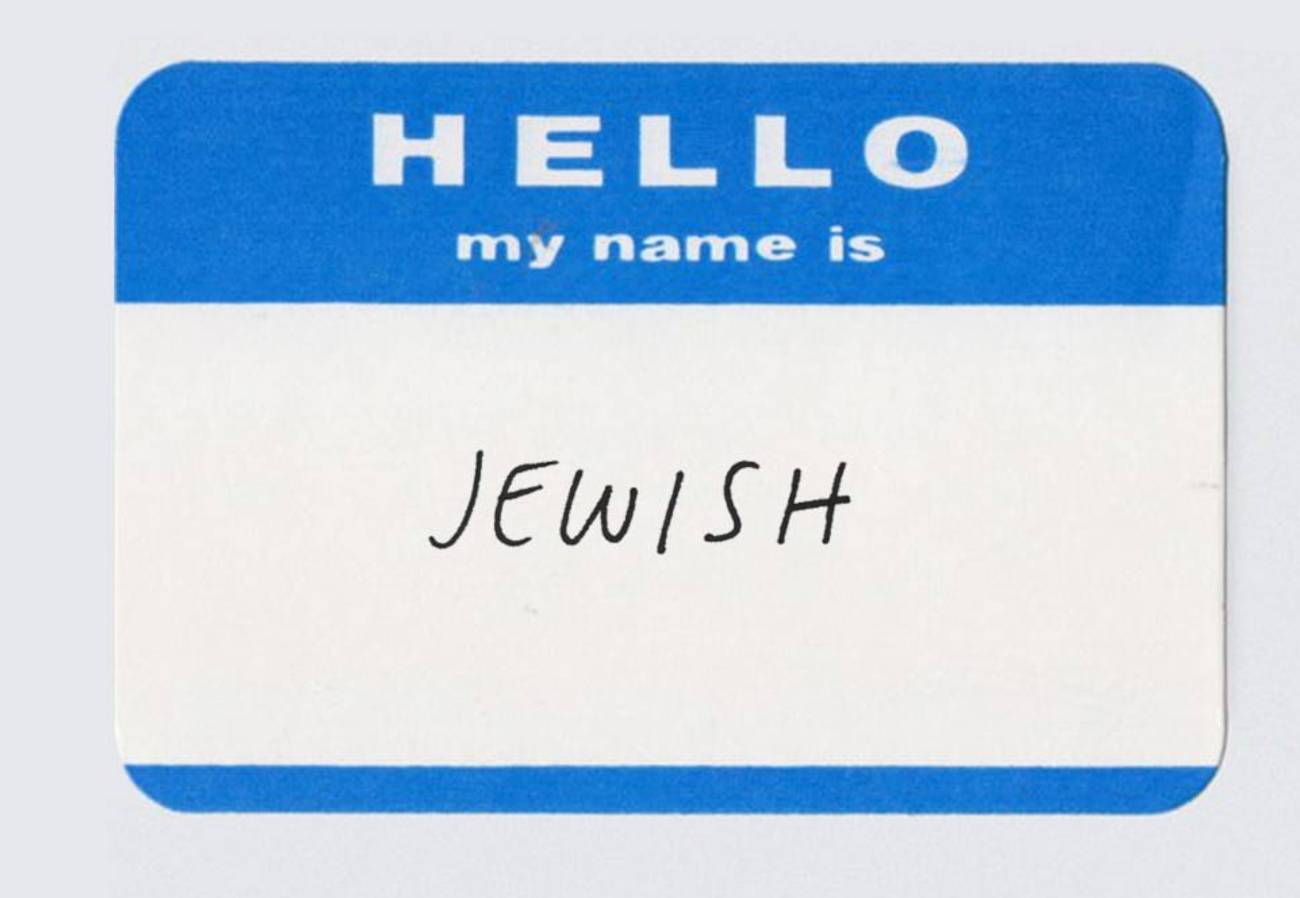A Jew Named Christine
People say the darnedest things to us converts. Please stop.




It was an idyllic Tuesday morning on a tree-lined street in suburban New York. I was on my way to interview a Holocaust survivor with a Jewish colleague, so our conversation naturally turned toward the topic of identity. At one point, my colleague looked at me and asked, “Have you ever thought about changing your name?”
“To what?” I replied.
And then it dawned on me what she was saying. But she continued without waiting for a reply: “So that other Jews would not feel uncomfortable.” There it was. Her question was not actually a question at all. It was a matter-of-fact statement that a Jew named Christine made people uncomfortable.
I sighed. It was not the first time that some Jew I barely knew questioned my name, and thus my Jewishness. People say the darnedest things to converts.
I love being Jewish. I have worn the same distinct Jewish hamsa for eight years, because I want people to know I’m a Jew. But I don’t love random strangers who weigh in on my name, or talk about my presumed affinity for the biblical character Ruth, or decide it’s OK to add an adjective to my Jewish status, making me “Jew-y,” “Jew-ish,” or a “Jew by choice.”
As a person who has heard dozens of well-intentioned but deprecating comments about my Jewish status, I can tell you that the best comment to make about someone else’s Jewish identity is no comment at all. In no world does judging someone else’s personal identity end well. It’s painful.
I never know what to reply to such weird comments. Mostly I’m dumbfounded. Occasionally, I’ll feel jaunty and reply, “If you think it’s hard to be a Jew named Christine, imagine how hard it must have been for Jesus!” Everyone laughs, but this glibness makes me look braver than I feel. At my first post-conversion Rosh Hashanah party, my introduction was hollered across the living room: “This is Christine, she’s a convert!” It is disorienting to feel so inwardly (and enthusiastically) Jewish and to still be identified, and questioned, by other people about my outward expressions of Yiddishkeit.
We converts can be strong bridges. But bridges are also one of the first thing that armies blow up during wars because they’re dangerous. I get it. But it is deeply unfair to relegate converts to arbitrary proving grounds over and over again because we were not born Jews. It’s a convert’s paradox: I finally arrived at the place that I’ve been working to join, only to discover that I have to keep running to catch up. I’ve had to learn how to pray, how to deftly apply a Yiddish turn of phrase, how to sagely use biblical allusions to make a point, and how to imbue our house with enough Jewish ritual to make it a Jewish home. And if that’s not enough, I discover along the way that the non-Jewish name trailing along behind me is a problem for other people.
They sure don’t tell you all this when you are preparing for your beit din.
Nor do they prepare you for all the Ruth talk. To take one example: Mark Oppenheimer recognizes in his Tablet article “Rethinking Conversion” that there are myriad pressures placed on converts to prove they belong. He suggests that to lessen such pressures we ask the proverbial question of what makes someone “Ruth-like” in her desire to convert rather than asking them to check off a list of mitzvot “to-dos.” I hate double standards as much as the next convert, but I can’t be alone among converts in being sick of all the invocations of Torah’s most famous convert. The incessant Ruthing can feel like another way to box us in, to assign a story rather than listening for ours: “Look here convert-lady, there’s a convert story in the Bible, so that must represent you!”
And so here we are, still grappling with the problem of a Jew named Christine—paradox, unorthodox, heterodox. But the issue isn’t about me, or my name, or my disinclination to be Ruthed. My story is merely an example of the sometimes dark and lonely journey that comes with navigating post-conversion expectations from Jews and non-Jews alike. None of the books or classes on conversion prepared me for this part of the process. They never mentioned all the times that I was going feel like an outsider more than I did when I was actually on the outside. Why did no one warn me that it was going to be so hard to own my own name, embrace my own identity as a non-Ruth, and fight qualifiers appended to my Jewish status? Where is all the support for converts after the beit din?
When I first decided to convert, it felt like an empowering process of self-discovery. Nowadays, it can feel more like an exercise in gaining other people’s approval. However, just because convert identity shouldn’t be the topic of conversation during an initial meet-and-greet doesn’t mean that we shouldn’t talk about it openly. Jews should continue to talk about conversion with converts at the table—but invite us to speak on our own terms, using our own names, describing ourselves however we like, including not at all.
I’ll start by just pulling up my chair right here and introducing myself as a Jew named Christine. Any questions about that? I didn’t think so.
Christine Beresniova is a sociocultural anthropologist who specializes in peace, tolerance, and Holocaust education.